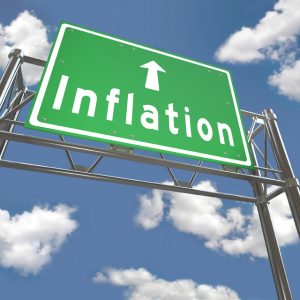The Consumer Prices Index (CPI) level of inflation has come in at 10.1%, a 40-year high, in September stoking fears that the Bank of England will raise interest rates by a full 100bps in November.
Inflation has once again topped 10 per cent after recording a slight dip to 9.9 per cent in August from the 10.1 per cent in July. It stands at a 40-year high.
While the August drop turned out to be a “temporary dip” and “a fluke”, according to Marcus Brookes, chief investment officer at Quilter, “there is still some way to go in this inflation journey given the Bank of England expects it to still go higher from here.”
Rising food prices continue to have a significant impact and along with housing and housing services, these were the main contributors to the increase. The fall in the price of motor fuels was the largest offsetting factor, according to the Office for National Statistics.
But in the coming months, while millions of households are cushioned from the full force of gas price volatility, the new Chancellor’s move to scale back the Energy Price Guarantee in April 2023 (currently set at an average of £2,500) “could well have a knock-on effect on inflation”, Brookes added.
‘More market volatility expected’
Today’s inflation figure is unlikely to have steered the Bank of England off its approach to interest rates.
The new Chancellor’s move to scrap the majority of his predecessor’s unfunded tax cuts announced in the disastrous mini Budget “could go some way to help and the Bank may opt to dial down the hawkish rhetoric for now”, according to the CIO.
Brookes said: “It may be satisfied by the moves made in Westminster for now, but in the coming weeks, we will see what it really makes of the government’s fiscal policy as it makes its next move at its November Monetary Policy Committee meeting. This is just a mere few days after the OBR is due to update its forecasts on 31 October, so more volatility in the market is expected.”
He added the “stubbornly high inflation” means it is likely the Bank will “take decisive action” and raise the base rate by 75 basis points.
However, Paul Dales, chief UK economist at Capital Economics, said it expects the Bank will raise the base rate by 100 basis points from the current 2.25 per cent to 3.25 per cent in November, before ramping up to 5 per cent.
Dales added that the consultancy expects inflation to hit 10.4 per cent in October and close to 11 per cent in April 2023 “as the early end to the energy price freeze means inflation will be higher for longer”.
This post is adapted and was originally published on this site

